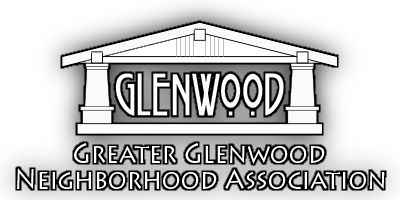By Jonelle Davis
12/20/2011, Greensboro News & Record
Preservation Greensboro saves three houses from demolition in a UNCG expansion.
GREENSBORO — UNCG has embarked on an expansion into Glenwood that will change the makeup of one of the city’s oldest neighborhoods.
But Preservation Greensboro wants to save as much of Glenwood’s character as possible and is doing so, house by house.
Preservation Greensboro recently bought three houses in the neighborhood that the university had slated for demolition. The organization used money from its development fund to buy them.
The houses are being relocated within Glenwood and will be rehabilitated and resold, said Marsh Prause, board chairman of Preservation Greensboro’s Development Fund.
Two houses were moved Friday and the third will be moved today. “We’re trying to pick up the pieces here and reinvest them in the neighborhood,” Prause said.
He believes the effort will help preserve Glenwood’s historic fabric.
UNCG has begun the initial phase of a major project that will add residence halls, a recreation center and police station in the neighborhood.
Prause said UNCG’s expansion has many pluses, but a negative is that several houses will be demolished. The three Preservation Greensboro is moving were built in the 1920s and 1930s. Two are Craftsman-style bungalows, and one is a Queen Anne cottage.
Much of their historical features — such as the original doors and molding — are intact, Prause said.
“They actually were lived in until shortly before the university bought them,” he said. “They’re in good shape.”
The homes’ buyers will have to agree to maintain those historical features, Prause said.
The houses will be sold for less than $100,000 each.
The houses were moved from Highland Avenue and Gregory Street to the 800 block of Haywood Street. They join three other houses already in that block that Preservation Greensboro also will rehabilitate.
Prause declined to say how much the organization paid for the houses, only that UNCG made the purchase very affordable. Preservation Greensboro also bought from the university the lots the houses will occupy.
The organization has been in discussions with UNCG and Glenwood residents about buying houses for more than a year. But there were a number of challenges, including finding relocation sites and the costly task of moving utilities, Prause said.
He said Preservation officials evaluated dozens of houses to determine which were feasible to move.
Glenwood residents, who have engaged in frequent debates with UNCG officials about elements of its expansion plan, are pleased with Preservation Greensboro’s efforts.
“We wanted to save as many houses and have as many moved in the neighborhood as we could,” said Mitzi Griffin, president of the Greater Glenwood Neighborhood Association.
The preserved houses will be sold as single-family residences.
“Our neighborhood plan calls for more owner-occupied homes because we’ve got so many rentals,” Griffin said.
Preservation Greensboro isn’t necessarily done. Prause said it could buy other houses as UNCG progresses with construction.
He expects it to take about a year to rehab and sell the Haywood Street homes. UNCG’s alumni association has offered to landscape the properties, and two brick suppliers have donated bricks for the foundations.
“There’s so much community support and partnership involved in this project,” he said.
Prause thinks the houses will be appealing to certain buyers, given their proximity to the university.
“The people who live in these houses will be able to just walk a couple hundred feet, and they’re going to be on the university’s campus,” he said.
Contact Jonnelle Davis at 373-7080 or jonnelle.davis@news-record.com
